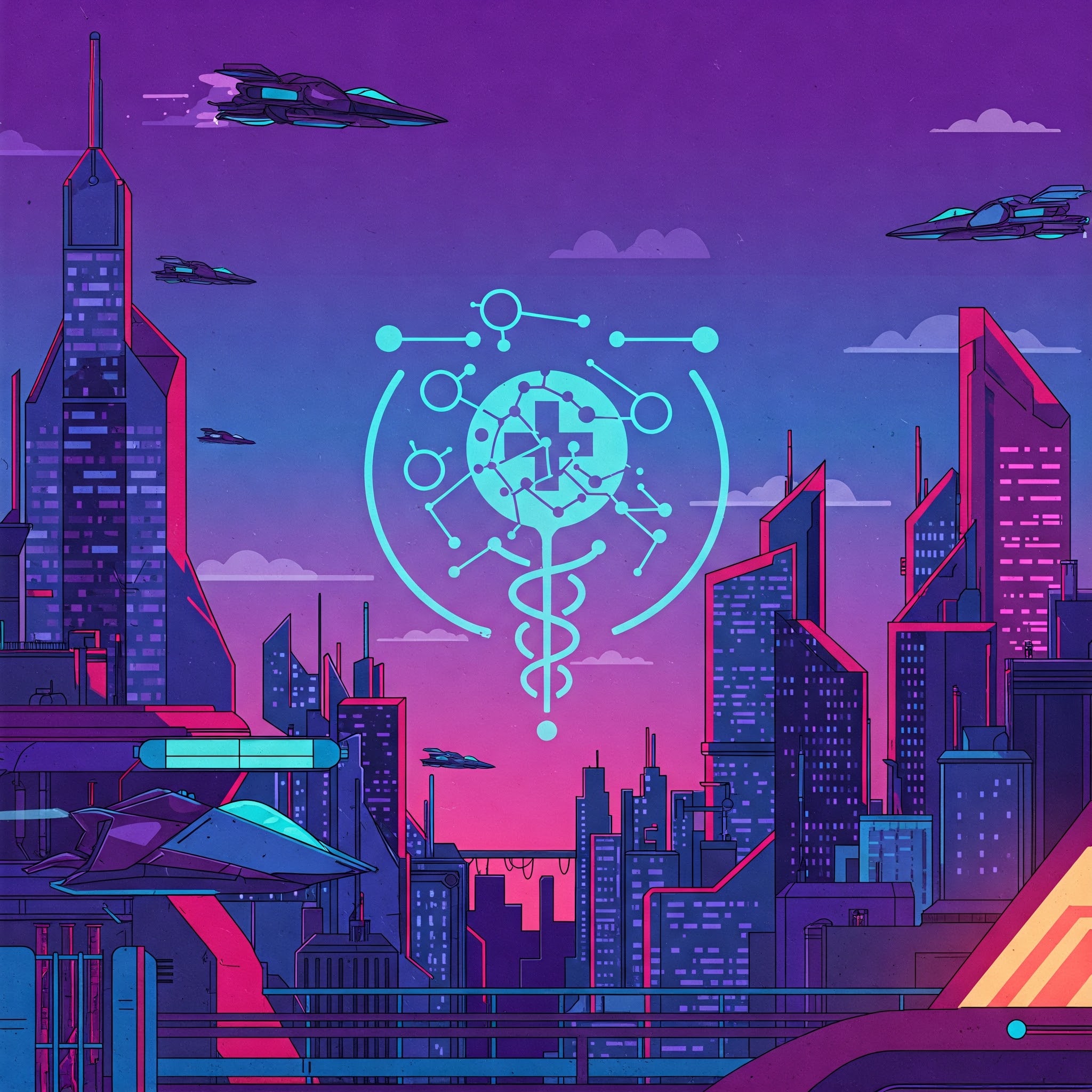How Generative AI is Revolutionizing Healthcare in 2025: A Comprehensive Guide

Strong 8k brings an ultra-HD IPTV experience to your living room and your pocket.
Introduction :
The healthcare industry is undergoing a significant transformation with the integration of generative AI (GenAI). This innovative technology is not only improving the efficiency of healthcare systems but also reshaping how medical professionals diagnose, treat, and care for patients. By leveraging advanced algorithms and vast amounts of data, generative AI is pushing the boundaries of what's possible in healthcare.
In 2025, the applications of generative AI are expanding rapidly, making it an essential tool in delivering personalized and data-driven medical solutions. This article will explore how generative AI is revolutionizing the healthcare landscape, its various applications, benefits, and challenges, and why building trust is crucial for its widespread adoption.
AI vs Generative AI in Healthcare: Understanding the Key Differences
Artificial Intelligence (AI) in Healthcare
Artificial Intelligence (AI) in healthcare generally refers to the use of machine learning, data analytics, and other technologies to automate processes, assist in decision-making, and improve patient outcomes. AI focuses on pattern recognition and data-driven predictions.
Generative AI in Healthcare
Generative AI, a subset of AI, takes this a step further by creating new content, predictions, or simulations based on existing data. Unlike traditional AI that can only classify or recognize patterns, generative AI can generate novel outputs such as synthetic medical images, personalized treatment recommendations, and drug candidates.
Key Differences:
- Functionality: AI is focused on analyzing data, while generative AI creates new data based on that analysis.
- Output: AI typically produces classifications or predictions, whereas generative AI produces new information (e.g., images, molecules, simulations).
- Applications: While AI is widely used in diagnostics and predictions, generative AI is involved in drug development, personalized healthcare, and even healthcare simulation.
Key Applications of Generative AI in Healthcare
Generative AI is being utilized across various healthcare sectors, including research, diagnostics, patient care, and operational management. Here are some prominent applications:
AI-Driven Drug Discovery and Development
Generative AI has the potential to speed up the drug discovery process by generating new molecules and predicting their interactions with specific diseases. It helps researchers simulate and test millions of chemical compounds, significantly reducing the time and cost involved in bringing new drugs to market.
In fact, AI tools like generative adversarial networks (GANs) are being used to design drug candidates that were previously unthinkable, targeting diseases with personalized therapies that fit an individual’s genetic profile.
Personalized Medicine and Treatment Plans
Generative AI enables the creation of highly personalized treatment plans by analyzing patient data such as medical history, genetic makeup, and lifestyle factors. By predicting the effectiveness of various treatment options, AI can assist doctors in selecting the best course of action for each patient, improving both outcomes and efficiency.
For example, AI can generate custom drug combinations or suggest alternative therapies based on real-time data from a patient's health records.
Virtual Health Assistants and Patient Care
Generative AI is increasingly being integrated into virtual health assistants that help patients manage their health outside of clinical settings. These AI systems can generate personalized health advice, reminders for medication, and provide real-time monitoring of chronic conditions. They are also able to simulate doctor-patient interactions, offering consultations that can guide patients through treatment options or provide aftercare support.
AI-Powered Diagnostic Tools and Imaging
In medical imaging, generative AI is being used to enhance diagnostic capabilities. By analyzing medical images such as X-rays, MRIs, and CT scans, generative AI models can generate highly detailed and accurate visualizations, helping doctors detect anomalies, tumors, and other conditions that may be missed by the human eye. Additionally, generative AI can create synthetic training datasets, which are used to train AI models, improving the accuracy of diagnostics in underserved regions.
Benefits of Generative AI for Healthcare
Improving Operational Efficiency
Generative AI streamlines many healthcare processes by automating routine tasks. AI systems can analyze medical records, optimize scheduling, and automate billing, reducing administrative burdens. Healthcare providers can focus more on patient care and less on administrative tasks, ultimately improving operational efficiency.
Enhancing Patient Outcomes and Experience
Generative AI contributes to improved patient outcomes by providing accurate diagnoses and personalized treatment plans. AI-driven tools can predict the progression of diseases, allowing for proactive interventions. Additionally, virtual assistants and remote monitoring improve the overall patient experience by providing continuous care and support outside of traditional settings.
Reducing Healthcare Costs
By speeding up drug development, improving diagnostic accuracy, and automating administrative tasks, generative AI reduces the overall cost of healthcare. The ability to predict and prevent diseases also leads to fewer hospitalizations and costly interventions, making healthcare more affordable for both providers and patients.
Data-Driven Decision Making
Generative AI enhances decision-making by analyzing vast amounts of medical data and providing actionable insights. Healthcare professionals can rely on AI to offer data-backed recommendations, improving the precision and effectiveness of treatments. This data-driven approach also facilitates better resource allocation, helping healthcare systems respond more efficiently to patient needs.
Challenges and Ethical Considerations in Implementing Generative AI in Healthcare
While generative AI holds tremendous promise, its integration into healthcare systems is not without challenges. One major concern is the ethical use of AI in medical decision-making. AI models are only as good as the data they are trained on, and biases in data can lead to unfair or inaccurate outcomes. It is essential to ensure that generative AI applications adhere to strict ethical standards and regulations to protect patient privacy and ensure fairness.
Additionally, the complexity of AI systems requires healthcare professionals to be properly trained to use these tools effectively, ensuring that AI complements, rather than replaces, human expertise.
The Importance of Building Customer Trust for Adopting Generative AI in Healthcare
For the widespread adoption of generative AI in healthcare, building trust among patients, healthcare providers, and regulatory bodies is paramount. Transparency in how AI models are developed, validated, and deployed is crucial to ensure stakeholders are confident in the system’s reliability and fairness.
Healthcare providers must engage in clear communication about how AI tools are used, focusing on the benefits to patients. They should also emphasize the security measures taken to protect patient data, ensuring compliance with regulations such as GDPR and HIPAA.
Case Study: Revolutionizing Healthcare with Generative AI and Computer Vision
A great example of how generative AI is transforming healthcare is its application in medical imaging. A leading hospital partnered with a generative AI development company to deploy AI-powered computer vision models to detect early signs of cancer in medical images. The system uses a combination of generative adversarial networks (GANs) to improve image quality and enhance detection accuracy.
In clinical trials, the AI system was able to identify cancerous tumors with a higher accuracy rate compared to traditional diagnostic methods, reducing false positives and negatives. The system’s ability to generate synthetic medical images has also expanded its training capabilities, leading to more robust AI models and better diagnostic results.
Conclusion:
Generative AI is poised to revolutionize healthcare by improving diagnostics, personalizing treatment, and driving operational efficiency. While challenges remain in terms of data privacy, trust, and ethical considerations, the benefits of generative AI are clear, and its adoption will likely grow significantly in the coming years.
For healthcare providers and companies offering generative AI development services, staying at the forefront of these advancements will be key to maintaining a competitive edge and improving patient outcomes.
Frequently Asked Questions (FAQ)
Q1: How does generative AI improve drug discovery?
Generative AI can simulate and predict the behavior of molecules, identifying promising drug candidates quickly and efficiently. This reduces the time and costs associated with traditional drug discovery methods.
Q2: What is the role of generative AI in personalized medicine?
Generative AI analyzes patient data to develop tailored treatment plans that are specifically suited to each individual’s medical history, genetics, and lifestyle.
Q3: Is generative AI widely adopted in healthcare?
While generative AI is still in the early stages of widespread adoption, its potential is being increasingly recognized, and more healthcare providers are beginning to integrate it into their systems.
Q4: Can generative AI replace doctors and medical professionals?
Generative AI is designed to assist healthcare professionals, not replace them. It helps with diagnostics, treatment planning, and patient care but requires human oversight to ensure optimal results.
Note: IndiBlogHub features both user-submitted and editorial content. We do not verify third-party contributions. Read our Disclaimer and Privacy Policyfor details.




